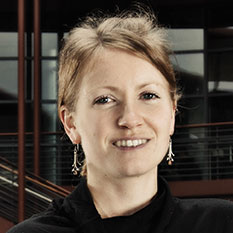How to grow a healthy social network
While Brian Loew was involved in technology strategy at the Washington Post, the paper launched an online political forum. It was an early attempt to harness the dynamic and democratic potential of the web, and it didn’t go entirely as expected. Some readers behaved so badly, editors felt compelled to turn off the commenting system.
Loew is now the CEO of Inspire, a social network that connects patients to each other while accelerating clinical trial recruitment. A million unique monthly users (235,000 of whom are registered members) gather on the site, launched in 2005, to connect with other people and access information around specific disease areas. Together, they write more than half a million words every day – the equivalent of about two Washington Posts.
So what makes the difference between melee and mind meld in an online forum? Loew, an entrepreneur since 1994 who has helped launch websites for many major publishers, says the magic lies in a few simple rules. They are:
- Give users anonymity but identity: Yes to Jane Smith posting under username Sunshine1000. No to Jane Smith posting under Sunshine1000 and Happy5 and Content21.
- Crowdsource: Enable any member to report a post as inappropriate (Would you like to buy my product?) or offensive (You’re an expletive!). “It’s astonishing,” Loew says. If something inappropriate is written in Inspire, “it’s discovered typically within minutes.”
- Employ good moderators: It’s easy to identify hate speech and commercial sales pitches – both forbidden on Inspire – but it’s harder to tell where healthy argument crosses the line into insult. (No topic is off-limits.) “That,” says Loew, “is where you need smart people with good judgment.” If a discussion starts generating “more heat than light,” a moderator steps in. Inspire’s ban rate is only about one in every 5,000 members. But “this tiny fraction of people can be so destructive, they can destroy a community if not moderated.”
- Employ software systems that guard against automated attacks: Nobody likes bots.
- (Bonus) Make space for experts: Inspire has exclusive relationships with 78 patient advocacy groups. If a particular discussion veers into irrationality, these partners tend to jump in and provide comment. Epatients are by their nature information seekers, Loew says. “Good information pushes out the bad.”
Inspire now holds more than half a billion words of unstructured content. Eventually Loew wants to be smarter about extracting knowledge from this heap by adding features that capture quantitative data, and to expand into mobile. But he doesn’t want to lose sight of what makes for a successful community in the first place.
“People don’t wake up in the morning thinking, Oh God, I want to go enter six data points about my psoriasis,” he says. “They go to Inspire because they have a fundamental human need to connect, to talk to other people about their conditions.”
Loew will be talking about his work on healthcare social networks at Stanford Medicine X 2012.
Kaliteli ve bir birinden daha muhteşem fiziğe sahip türk kadınlarının buluştuğu escort diyarbakır sitesi farkını tadın.







Thank you for this blog post. As a professional dealing with a niche web-source dealing with vascular medicine related issues, I was very happy to learn something from your success story. Finding ways for ordinary people and professionals to connect with one another is indeed a challenge. I believe this challenge is greater in the medical field, where often privacy and anonymity are of utmost importance.